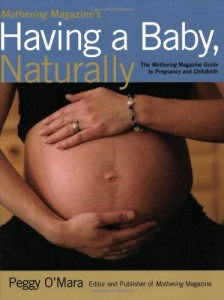Freedom Of Conscience
Informed Consent is an ethical and legal doctrine that has developed over the last century in tandem with the growth of participatory medicine and all 50 states have legislation that delineates the required standards for informed consent.

Informed consent means that a patient must receive enough information to make a reasonable decision regarding treatment. In order for informed consent to occur, the patient must:
- Be informed of the benefits and risks of a surgical procedure, medical procedure, drug or other course of treatment.
- Be informed of alternatives to the procedure or drug.
- Not be coerced into make a decision.
- Provide written consent.
The physician is not justified in failing to inform the patient because the patient might decline the recommended treatment. In fact, the right to decline is the specific fundamental right protected by the doctrine of informed consent.
According to “Providing information about options in patient decision aids,” Healthcare providers are bound by theethical doctrine of informed consent, which is founded on three principles:
- autonomy (which obligates the providers to ensure that the patients can act in their own best interest without undue pressure)
- beneficence and non-malfeasance (which obligates the providers to choose to do good and to avoid doing harm to patients)
- distributive justice (which obligates the providers to treat all patients equally.
INFORMED CONSENT AND VACCINATIONS

All states grant medical exemptions to vaccines. In addition, most states, with the exception of Mississippi and West Virginia, grant religious exemptions. Some religious exemptions are written broadly to include “religious beliefs, held individually or jointly with others.” Seventeen states also grant philosophical exemptions. The National Vaccine Information Center offers a map of State Laws and Vaccine Requirements.
George Annas, JD, MPH, the Edward R. Utley Professor and chair of the Department of Health Law, Bioethics and Human Rights of Boston University School of Public Health and professor in the Boston University School of Medicine and School of Law is a leader in the public health community and a supporter of vaccines. However, he also defends the right of individuals to seek exemptions from them. According to Annas, 90% of people want vaccines and it is lack of access to them, not exemption from them, that is the problem.
Likewise, the American Academy of Pediatrics (AAP), staunch supporters of universal childhood vaccinations, encourages physicians to seek “informed permission of parents before providing immunizations.” In the “American Academy of Pediatrics Bioethics Resident Curriculum: Case-Based Teaching Guides,” it states:
Except in emergency situations in which a child’s life is threatened imminently or a delay would result in significant suffering or risk to the child, a physician cannot do something to a child without the permission of the child’s parent or guardian. Touching (or administering a medication or vaccine) without consent is considered battery under the law. In the case of routine vaccination, the American Academy of Pediatrics does not believe parental refusal should be viewed as child neglect.
MANDATORY VACCINATIONS
While vaccines are effective, mass vaccines, enforced by law, are a new experiment. Mass vaccines began in the 1950s and were heralded by a horrific event. In 1955, 70,000 people got polio within days of being vaccinated: 200 were paralyzed and 10 died. Cutter Laboratories had failed to kill the polio in the vaccine. According to Paul Offit, in The Cutter Incident: How Americas First Polio Vaccine Led to the Current Vaccine Crisis, this was the beginning of modern liability awards in which a company can be found liable even if it is not guilty of malice.
The National Childhood Vaccine Injury Act was passed in 1986, and since 1988 vaccine liability in the US has been decided within the National Vaccine Injury Compensation Program (NVICP). Although it was intended to be an easy, no-fault way for parents to receive compensation, “On average, it takes 2-3 years to adjudicate a petition/claim after it is filed,” according to the NVICP
Between 1998 and 2014, 15,100 petitions were filed with NVICP. Of these claims, 3,540 were found “compensable” and a total of $2,671,223,269.97 was paid in compensation. By far the vast marjority of the 3,540 compensable claims were 1269 compensated claims related to the whole cell DPT vaccine. Next in frequency are 698 compensated claims related to the trivalent Influenza vaccine, and 357 claims related to the MMR vaccine.
WHAT OTHER COUNTRIES DO: JAPAN
Japan, a country of 127.3 million people with low infant mortality and high life expectancy, has had a completely voluntary vaccination system since 1994. No system exists to check vaccine status in schools in Japan. Recommended vaccines are free and one must pay out of pocket for elective vaccines. Vaccination coverage rates are high because the Japanese public has high trust in authority and high expectations for vaccine safety.
The Japanese culture values quality control and product excellence and Japanese health officials take the possibility of vaccine reactions seriously. They ask all parents to fill out a detailed immunization questionnaire and to record any possible vaccine reactions in the Mother and Child Health Handbook that the government provides.
Parents must read the handbook and give consent before their child receives vaccines. They are directed to take their child’s temperature before a vaccination is administered, as Japanese health officials believe that vaccinations may worsen an already sick child. The handbook also asks that parents observe their children’s behavior for 30 minutes following vaccination.
In Japan, vaccinations are not given to children if they have fever or an acute illness or have shown any abnormal symptoms following a previous dose of a vaccine and generally only one injection is given at a time. Inactivated vaccines are routinely administered at intervals of no less than six days apart and live vaccines at intervals of no less than 27 days apart.
FREEDOM OF CONSCIENCE
Even those who favor aggressive health policy, according to Annas, are in favor of volunteerism, of urging people to get vaccinated rather than attempting to force them. Annas said that all public health experience has shown that there is “no force on earth strong enough to get someone to do something they don’t want to do and think is not in the best interest of their family.” In a healthy population human rights and dignity are required.
Choice is important for many reasons. First, the doctrine of informed consent is a requirement of ethical health policy. Secondly, we live in a country in which health care is both a business and a service. Thirdly, it has been parent advocacy that has resulted in safer vaccines.
Most importantly, however, it is essential that an individual make a free choice in order to live with the outcome of a decision, no matter what it is. Only when a decision is not coerced can one live with the consequences of one’s actions. Anything else is tyranny.
For more on this topic see:
Conscious Choice Resources
National Vaccine Information Center
Featured Photo Shutterstock/ER_09

